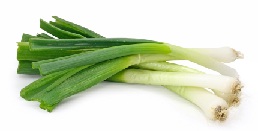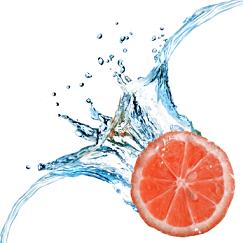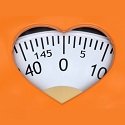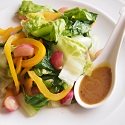Lose Weight
![]() Calories in Food
Calories in Food
![]() Calories in Vegetables
Calories in Vegetables
![]() Calories in Spring Onions
Calories in Spring Onions
Calories in Spring Onions,
Spring Onion Nutrition
How many calories in Spring Onions? See below, the Spring Onion calories for the different serving sizes. We provide you with the Spring Onion nutrition facts and the health benefits of Spring Onions to help you to lose weight and eat a healthy diet.
Spring Onions are also popularly known as scallions. They are not generally as hot as their larger cousin and are great in salads. Do eat both the bulb and the green stalk. Spring onions are a great source of vitamins A, K, lutein, and beta-carotene. They also provide vitamins B1-B3, B5, B6, B9 (folate), C, potassium, calcium, phosphorus and magnesium.
Spring Onions are thought to help lower your blood pressure and your cholesterol levels. Other Spring Onion benefits are thought to include acting as an anti-inflammatory and helping to boost the immune system.
Below we have a calorie and detailed nutrition table for this vegetable. Compare the nutrition and calories in Spring Onions with the calories in other vegetable varieties.
All of our calorie and nutrition data is provided by the US Department of Agriculture.

Calories in Spring Onions or Scallions (Includes Tops and Bulb), Raw
Refuse: 4% (Rootlets)Scientific Name: Allium cepa or Allium fistulosum
| Serving Size | Calories per Serving |
| 100 grams | 32 kcal (135 kJ) |
| 1 cup, chopped, 100 grams | 32 kcal (135 kJ) |
| 1 tbsp chopped, 6 grams | 2 kcal (8 kJ) |
| 1 large, 25 grams | 8 kcal (34 kJ) |
| 1 medium (4-1/8" long), 15 grams | 5 kcal (20 kJ) |
| 1 small (3" long), 5 grams | 2 kcal (7 kJ) |
Spring Onion Nutritional Information
| Nutritional value per 100 g (3.5 oz) | |
|---|---|
| Proximates: | |
| Water | 89.83 g |
| Energy | 32 kJ (135 kcal) |
| Carbohydrates | 7.34 g |
| Sugars | 2.33 g |
| Dietary fiber | 2.6 g |
| Fat | 0.19 g |
| Protein | 1.83 g |
| Minerals: | |
| Calcium, Ca | 72 mg (7 %) |
| Iron, Fe | 1.48 mg (8 %) |
| Magnesium, Mg | 20 mg (5 %) |
| Phosphorus, P | 37 mg (4 %) |
| Potassium, K | 276 mg (6 %) |
| Zinc, Zn | 0.39 mg (3 %) |
| Copper, Cu | 0.083 mg (4 %) |
| Manganese, Mn | 0.160 mg (8 %) |
| Selenium, Se | 0.6 mcg (0.9 %) |
| Vitamins: | |
| Vitamin C | 18.8 mg (31 %) |
| Thiamine (Vit. B1) | 0.055 mg (6%) |
| Riboflavin (Vit. B2) | 0.080 mg (5 %) |
| Niacin (Vit. B3) | 0.525 mg (3 %) |
| Pantothenic acid (B5) | 0.075 mg (0.8 %) |
| Vitamin B6 | 0.061 mg (3 %) |
| Folate (Vit. B9) | 64 mcg (16 %) |
| Vitamin A | 997 IU (20 %) |
| Vitamin E | 0.55 mg (3 %) |
| Vitamin K | 207 mcg (259 %) |
| Percentages are relative to US Recommended Daily Intake (RDI) for adults. | |
Author: Lana Soko
You Might Also Like:
Like This Page?
|
Share This Page:
|







